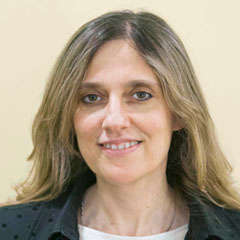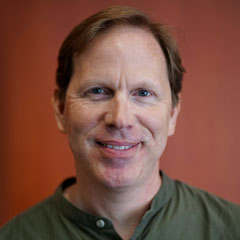Communications of the ACM
Two Computer Scientists Among 2017 Macarthur 'genius' Grant Winners

Two computer scientists were among the 24 historians, musicians, scientists, social activists, writers, and architects selected as 2017 MacArthur Fellows.
Credit: MacArthur Foundation
Two computer scientists were among the 24 extraordinary people selected to receive John D. and Catherine T. MacArthur Foundation fellowships (often referred to as "genius" grants).
The MacArthur Fellowship is a $625,000, no-strings-attached award to extraordinarily talented and creative individuals as an investment in their potential. The program is intended to encourage people of outstanding talent to pursue their own creative, intellectual, and professional inclinations.
This year's new Fellows include two computer scientists.
Regina Barzilay is a computer scientist in the Department of Electrical Engineering and Computer Science of the Massachusetts Institute of Technology.
Barzilay is a computational linguist developing machine learning methods that enable computers to interpret unstructured document content and perform real-world tasks with the promise for significant societal impact.

Regina Barzilay
Barzilay has made significant contributions to a wide range of problems in computational linguistics, including both interpretation and generation of human language. Much of her work is focused on designing machine learning models that do not require large amounts of annotations for training since such resources are not available for most languages and tasks.
Currently, Barzilay currently is focused on bringing the power of machine learning to oncology. In collaboration with physicians and her students, she is working on deep learning models that will utilize imaging, free text, and structured data to identify trends that affect early diagnosis, treatment, and disease prevention.
Stefan Savage is a computer scientist in Department of Computer Science and Engineering of the University of California, San Diego.
Savage is using an interdisciplinary approach to address challenges to computer security and to counter cybercrime. In addition to identifying technological deficiencies, he contextualizes cybersecurity threats within much broader ecosystems, including underlying economic incentives and social structures contributing to vulnerabilities.

Stefan Savage
Savage has created new strategies for defending against malware and distributed denial of service attacks. He and colleagues devised a method for automatically measuring unusual data patterns and identifying worm signatures (or recurring strings of code) across a network, to impede the spread of fast-acting worms, which can quickly compromise an entire network.
Among other accomplishments, Savage and collaborators measured network-level interactions to characterize the value chain of Internet-related crime, identifying a critical bottleneck for spam email campaigns and online counterfeit goods transactions, which allowed the drug and credit card companies to disrupt the business models of several counterfeit drug rings to such an extent that they collapsed.
The Foundation said Savage "is playing a key role in shaping cybersecurity debates among computer scientists while also informing efforts to fight ongoing security threats posed by a variety of actors."
Said Cecilia Conrad, managing director of the MacArthur Fellows Program, "From transforming conditions for low-wage workers to identifying internet security vulnerabilities, from celebrating the African American string band tradition to designing resilient urban habitats, these new MacArthur Fellows bring their exceptional creativity to diverse people, places, and social challenges. Their work gives us reason for optimism and inspires us all."
No entries found